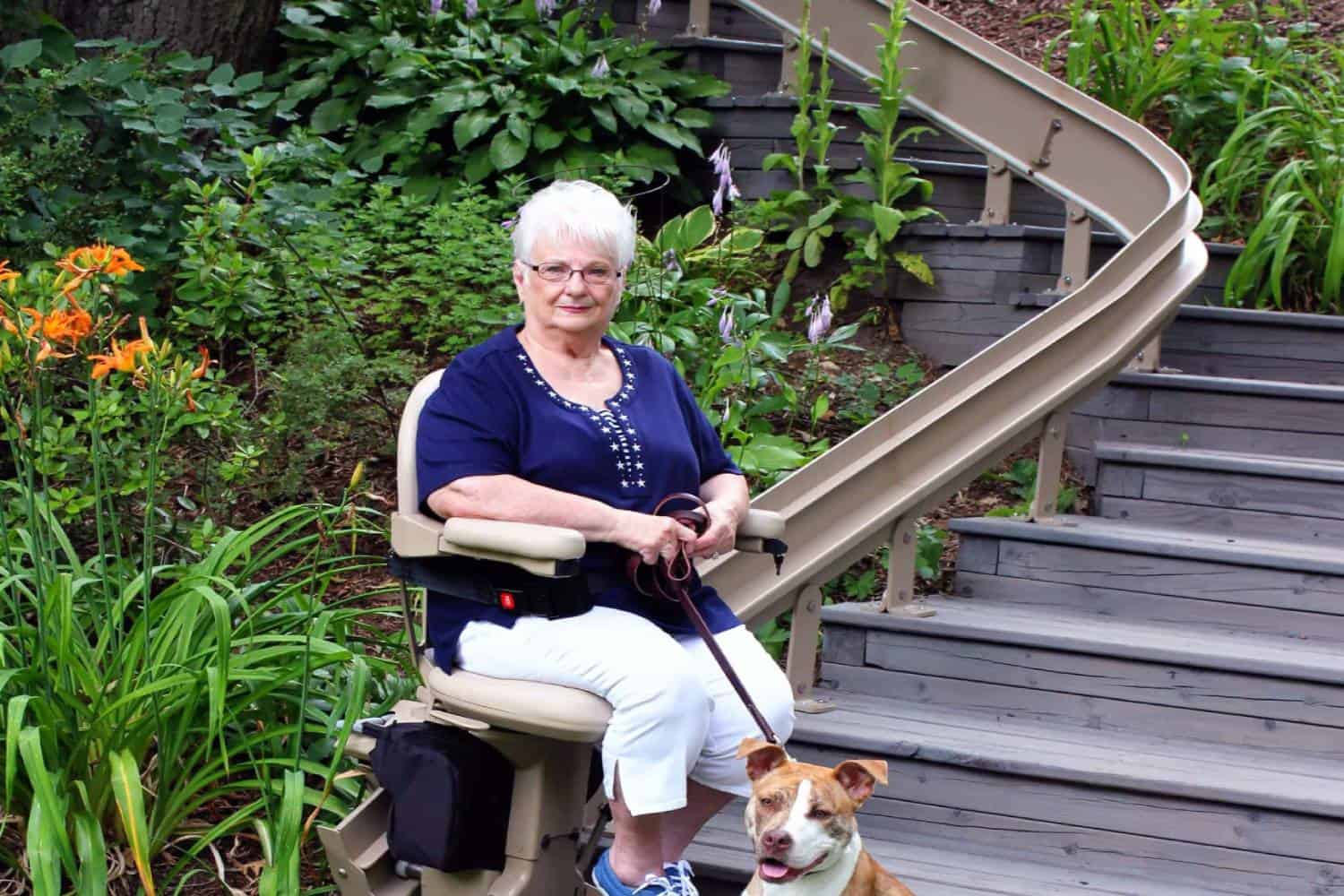It can be tough to know when the time has come for assistive devices for your senior loved one. First, it may seem like a betrayal to question their ability to care for themselves unassisted, and two, it can involve a difficult conversation that is hard to broach. The truth is, assistive devices are not an implication of inability, but rather a helping hand to preserve autonomy and facilitate aging in place.
When is the right time to suggest mobility equipment, like stairlifts, to your loved one? It can be a tough conversation to have, implying that they need or warrant help. However, implementing simple mobility aids doesn’t have to be a difficult time, but rather should be an enlightening and life-changing experience. After all, access will be improved, fall risk reduced, and independence preserved- what could be better than that?
So, how do you know when it is time for assistive devices?
ADLs
Is your loved one having difficulty with routine activities of daily living (ADLs)? That is, do you notice if they appear unkempt, are not eating, or are having struggles keeping their home environment clean? These could be signs that they are having issues with accessibility, which means that assistive devices could help. For instance, if your loved one suffers from a medical condition that impacts small motor movements, like buttoning buttons when getting dressed, there are assistive devices for that! There are other options, too, like adaptive apparel that doesn’t utilize actual buttons but much easier snaps or tabs.
Keep an eye on your loved ones to see how they respond and carry on with their ADLs. If the subject comes up, be compassionate and empathetic. Try to convey that you are offering some potential aids and solutions, not compromising their independence.
Behavior
How is your loved one acting? When access is an issue, independence can be threatened; this could make some people irritable and prickly. Ask them outright if something is wrong; also, make a note of any isolative or out-of-character behavior that could stem from anxiety or fear. For instance, if your loved one experienced a fall or medical episode, they may feel like their autonomy is on the line. This may make them retreat and be less communicative. Build trust and talk to them honestly about what mobility aids may be able to do for them.
Mood
Have you noticed any obvious change in your loved one’s mood? How about yourself? Mood may also allude to the fact that it is time for change- and that change might be found with assistive devices and mobility aids. There is a sense of anxiety and fear that can come from a loss of autonomy; barriers to access may feel like one’s independence is being taken away. Providing a means of access and overall accessibility for everyday life and normal circumstances is huge- it cannot be overemphasized enough.
Furthermore, these mixed emotions related to a loss of mobility or physical afflictions can cause depression or mood lability. If you notice your loved one is acting sad, hopeless, or lethargic, ask them to confide in you. Or you may report these symptoms to the loved one’s primary care provider to rule out any other medical issue that could be the cause of the mood changes. It may be that your loved one is feeling discouraged or frustrated by their circumstance; improved accessibility may be a welcome reprieve for them.
Caregiving
Mobility aids and equipment are also of great benefit to caregivers and providers. First, it mitigates the potential injury that these helpers can sustain on-the-job. Also, it allows them the opportunity to do their job with less risk to the client- or loved one- which improves morale all the way around.
Mobility aids also offer opportunities for the client that might otherwise not be prudent. For example, pool lifts or freestanding lifts may facilitate exercise, recreation, and a swim for clients with physical limitation or impairment. This extends to those rehabilitating from surgery or a medical episode that should be exercising as part of their recovery plan.
Assessment
Your loved one’s primary provider or physician can complete assessments and make referrals that will get mobility aids installed at little to no cost. Depending on the aid and the individual, it may be possible to have these devices covered by insurance. Also, before settling on a specific mobility aid or equipment, ask for a comprehensive assessment by the vendor; this is a common service among professional mobility retailers widely. Furthermore, this will help pinpoint the most pragmatic solution for your distinct situation.
Is it time for assistive devices? Talk to the professionals at Pacific Mobility for the latest mobility solutions to suit you or your loved one’s needs. From grab-bars to stairlifts, and ramps to reaching- tools, mobility aids enhance everyday living and improve quality of life. Call or visit today.
President, Husband, Father, Grandfather Graduate of UC Davis- Bio Sci Major- Go Aggies! Jeff has extensive experience in all of Pacific Mobility’s products and services, and specializes in accessibility products as well as stairlifts, ceiling lifts and custom wheel chairs. His hobbies include spending time with family, gardening, mountain biking, exercising and off road motorcycle riding.
24 years as Owner/President of Pacific Mobility Center – selling, installing, and servicing stairlifts, porch lifts, ceiling lifts, pool lifts, handicap ramping, specialty wheelchairs, scooters, power wheel chairs, and other power mobility devices
Certified Environmental Access Consultant since 2008
Licensed General Contractor since 1998
Certified Aging in Place Specialist since 2016
Board Member for Home Access Professionals
Member of Association of Members of the Accessibility Equipment Industry (AEMA)




